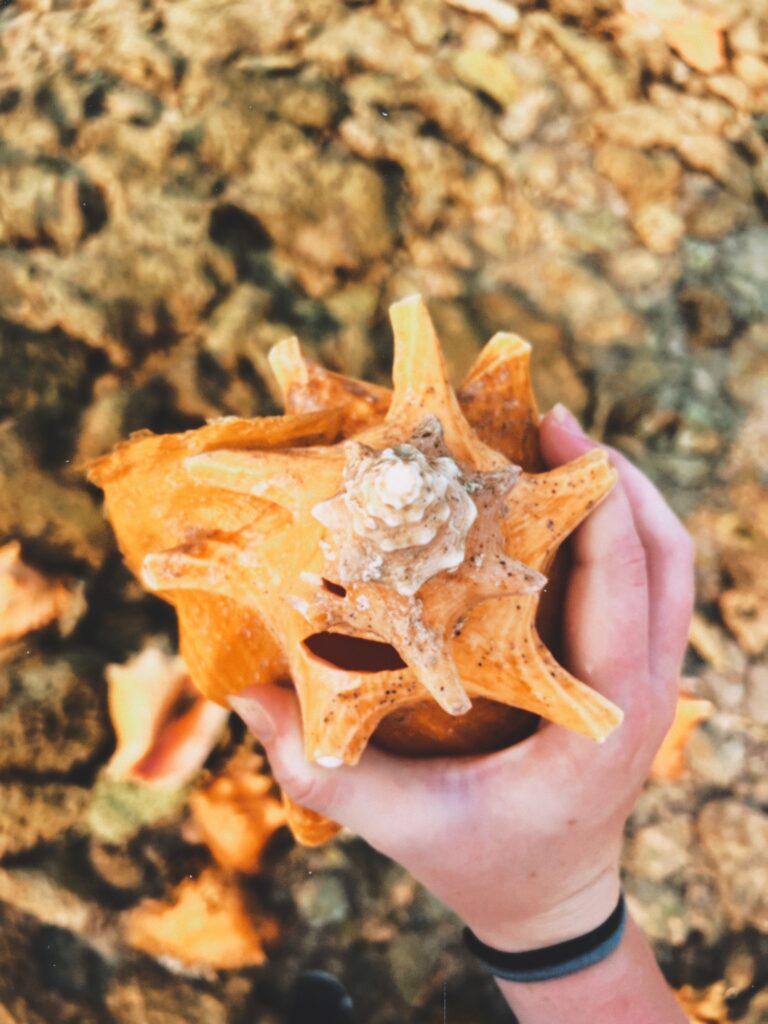Historically, Queen Conch has held a huge role culturally and economically in the Caribbean. I have seen this on my trip to Belize through the high amounts of conch shells that are included in Belizean architecture and cuisine, with dishes such as Conch fritters, Conch salsa, and Conch soup being served almost regularly. Though the meat is sought after for human consumption, the shells are also used as decor or converted into other ornamental products, and the conch pearls are extremely valuable for jewelry. The popularity of this species for human uses has led to overfishing, poaching, and severe population decline. In an attempt to conserve and recover their Queen Conch population, Belize has several regulations put in place. They include:
- Shells must be greater than 7 inches in shell length to be harvested. This ensures that the shell has reached maturity and reproduced before it is removed from the ecosystem.
- Market-cleaned fillets must be at least 3 ounces. This is meant to ensure that the shell has reached maturity (in terms of weight) and reproduced before it is harvested.
- Complete cleaned (white meat only) must exceed 2.5 ounces. Similar to the regulation above.
- No restaurants can store diced conch. This one aims to prevent the unnecessary harvesting of Conch.
- Conch can be harvested from October 1 through June 30, but the season can be ended early if the quota is exceeded.
These regulations are controversial in nature, due to questions about their effectiveness and enforcement. As we investigate the Conch population alongside locals on our trip, I have begun to understand why it is so difficult to enforce these rules. Many current Belizans depend on Conchs for food or to sell for a living, just as their ancestors have for generations before them. The line between what is ethical and unethical in Conch population management has proven to be quite muddled, and I cannot even begin to imagine what is the correct solution for the situation. As NOAA has recently declared Queen Conch a threatened species, I am left to wonder how this time-sensitive issue will be resolved in a way that is beneficial for both the Conch and the people who depend on them.

